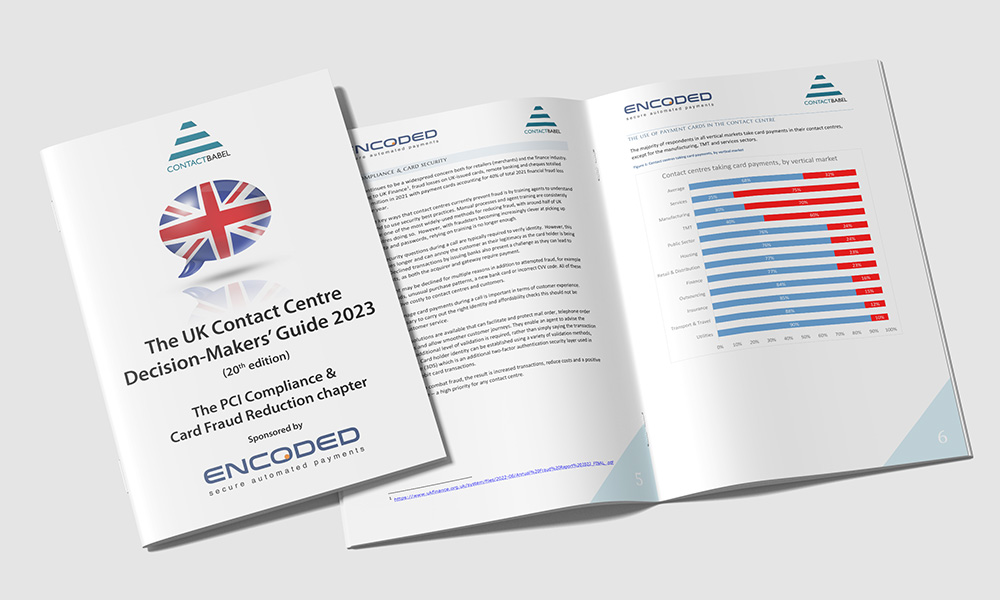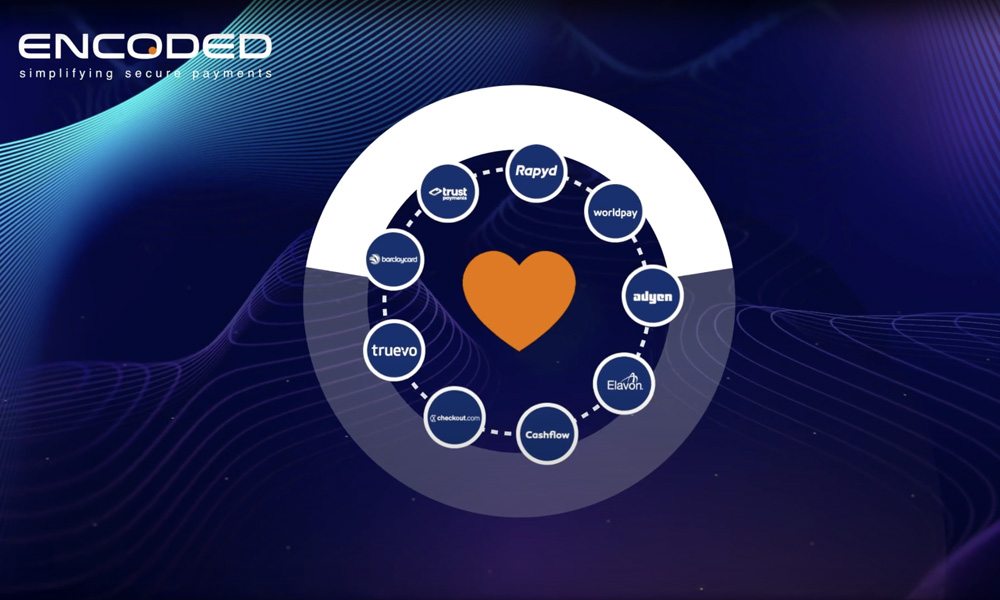Now in its 20th year ContactBabel’s 2023 UK Contact Centre DMG highlighted the highest ever average speed to answer and call abandonment rates. Rob Crutchington, CEO of Encoded, discusses three other key findings and how modern technology and payment orchestration can address the issues to help contact centres reduce costs, protect card data and improve customer experience.
1. The average cost of an inbound call is £6.55 – 70% more than email and 96% more than webchat
With calls to contact centres continuing to cost significantly more than other channels, many organisations are introducing automated and self-service service options for customer interactions. The DMG report states that 50% of Webchats are now handled by chatbots, automating answers and freeing agents to deal with more complex enquiries. This change has been mirrored in the increased number of automated and self-service payment options now available for contact centres, online and remote sales operations.
The report records the use of Interactive Voice Response (IVR) for payments, both post call and mid-call to have increased by a full percentage point this year over last year’s findings – from 4% this year to 5% and from 17% to 18% respectively. As a self-service option, IVR provides 24/7 secure payment options and reduced costs in comparison to agents taking payments.
Similarly, secure payment links sent using SMS or email have seen an increase in adoption for the third consecutive year. The benefits of PayByLink include secure payment and reduced agent time on the call. Card data is kept outside the scope of PCI DSS compliance and it can be linked with tokenisation, to allow for recurring payments.
2. 93% of UK contact centres expect some of their agents to be working remotely in 2023
3. 79% of UK contact centres now use at least one cloud-based application
The benefits of choosing a third-party provider mean that no cardholder data is passed into the contact centre environment, whether infrastructure, agents or storage. It is great for businesses that want to take card payments but don’t want to manage PCI DSS compliance internally.
What’s next? Payment orchestration takes centre stage to benefit consumers
Whatever the economic situation, businesses will need to invest in delivering a positive customer experience to succeed. Secure, fast, payment solutions will be a key cornerstone for successful transactions that ensure customer loyalty and facilitate a healthy cashflow.
The need to achieve consistent transaction success will see payment orchestration take centre stage. Payment orchestration integrates and manages the entire payment process, from payment authorisation to transaction routing and settlement. With the increasing number of third-party technologies and services that merchants need to juggle, payment orchestration platforms provide seamless payments, guiding transactions from payer to payee.
In Encoded’s next blog we explore further how a payment orchestration layer can wield its baton to conduct the entire payment process, hitting the right notes to improve the end-customer experience with smoother transaction processing and helping to increase ROI (return on investment) per transaction for merchants.
To read the full findings and the latest report on PCI Compliance and Fraud Reduction download ContactBabel’s UK CC DMG 2023 Report.






